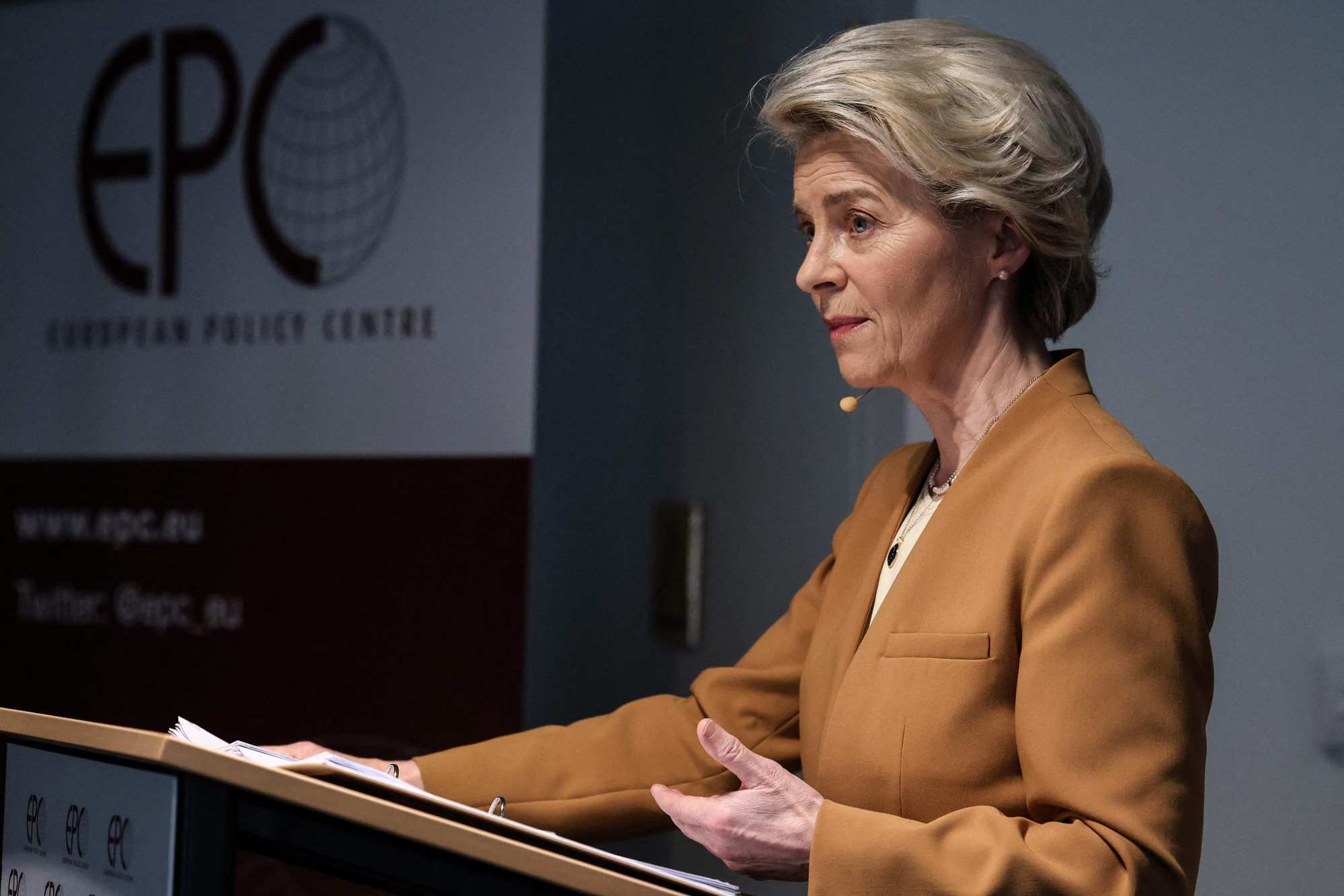Advertisement
Advertisement

Opinion
Andrew Hammond
Andrew Hammond
Europe’s diplomatic dance with China won’t foil Xi-Putin friendship
- Senior European leaders have travelled to Beijing hoping to chip away at China’s support for Russia
- However, economic ties between China and Russia have deepened over the past years, and are underscored by a warm relationship between the countries’ leaders
Three senior European leaders have travelled thousands of miles to Beijing in recent days to see Chinese President Xi Jinping, yet the focus of their discussions lie much closer to home in Ukraine.
The backdrop to Xi’s meetings with Spanish Prime Minister Pedro Sanchez, European Commission President Ursula von der Leyen and French President Emmanuel Macron is the ongoing conflict. Russia’s invasion has left Europe, and the wider West, including the United States and Canada, more united than in years.
With US-China relations at rock bottom, Beijing must be keen to avoid a long-lasting public spat with the European Union, which is one of China’s biggest trading partners. Indeed, one driver of Xi’s 12-point “peace plan” released in February, which was focused more on broad principles than detailed ideas, is softening European and broader international opinion about China’s stance on the conflict, rather than being a realistic blueprint for quickly resolving the conflict.
China’s deteriorating relationship with the US has given Europe more leverage. China is keen to revive discussions on the EU-China Comprehensive Agreement on Investment, an accord agreed on in principle in December 2020, but which has not yet been ratified by the European Parliament owing to growing concerns in Brussels about Beijing’s behaviour.
This window of opportunity will be seized on by Macron, in particular, given his desire for Europe to bolster what he calls its “strategic autonomy” vis-à-vis other global powers. Macron is accompanied on his trip by Finance Minister Bruno Le Maire and Foreign Minister Catherine Colonna, plus heads of about 50 firms including Veolia, EDF and Airbus.
While Europe wants to maintain engagement with China, this will be much harder if Chinese President Xi Jinping continues to stand by Russia, especially if Beijing intensifies support for Moscow on Ukraine. Hence, von der Leyen has said the 27-member bloc should focus on “de-risking” diplomatically and economically, without “decoupling” completely from Beijing.

So, just as Xi engages in a charm offensive with Europe, Sanchez, von der Leyen and Macron have their own agenda with China too, including on Ukraine. That is, they hope to chip away at Beijing’s support for Moscow.
For instance, Macron is expected to flag to Xi, who was hosted at the Kremlin last month, that Europe regards it as unacceptable for China to provide any arms to Russia. Russian President Vladimir Putin’s recent announcement that he will station tactical nuclear weapons in Belarus could provide an opportunity for the French president to push China to distance itself from Russia on this point, Beijing having previously criticised nuclear proliferation.
However, while Xi may not intend – for now – to move significantly closer to Putin, it is unlikely Europe will succeed in significantly disrupting the Russia-China relationship in the near term. That is, unless Putin oversteps the mark, and goes beyond one of Xi’s “red lines”, such as the use of nuclear weapons.
One reason Xi is unlikely to break decisively with Putin, if the latter remains in office and doesn’t badly miscalculate further, is not just their political warmth now over several years, but also growing bilateral economic ties. The latter is the key driver of the Chinese leader’s plans to “continue prioritising its strategic partnership” with Moscow, especially given the current chilliness of ties with the US.
In 2018, Xi said the Russia-China comprehensive strategic partnership is “the highest-level, most profound and strategically most significant relationship between major countries in the world” and called Putin “my best, most intimate friend”. On the security front, the two countries conduct regular joint war games.
China and Russia’s economic dialogue has deepened, significantly, since Moscow’s annexation of Crimea in 2014. Cooperation projects include alternatives to the globally used Swift system of interbank transfers as part of plans to to create a shared financial and economic infrastructure that will allow them to function independently of Western-dominated financial institutions.
This economic cooperation agenda has fostered stronger, common positions on key regional and global issues too, such as on North Korea, with which both Russia and China have land borders.
Taken together, with Chinese and Russia’s relations with the US looking ever unpredictable, Putin and Xi may place increasing emphasis on their partnership, despite any disagreements over Ukraine. While this is underpinned by a growing economic and political dialogue, their personal closeness also appears to be underscoring a relationship which may only warm further if both remain in office.
Andrew Hammond is an associate at LSE IDEAS at the London School of Economics

22
